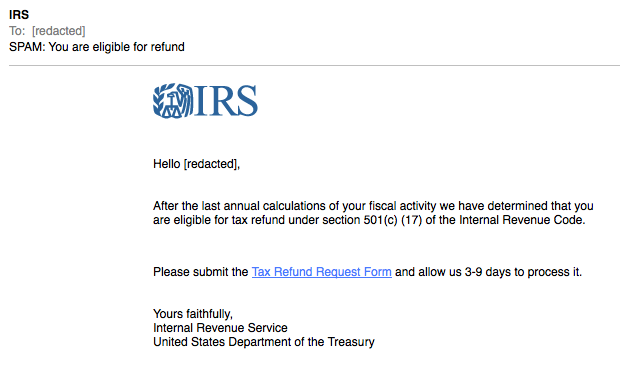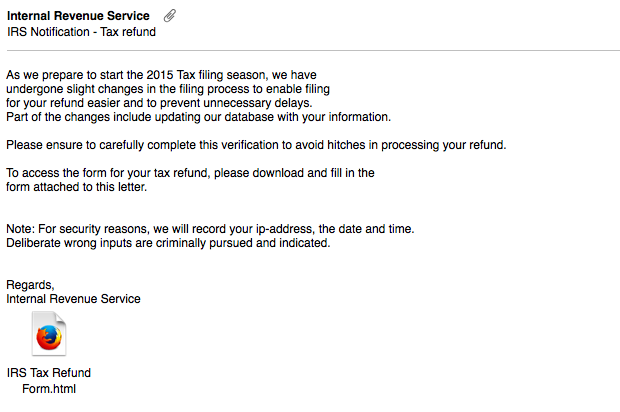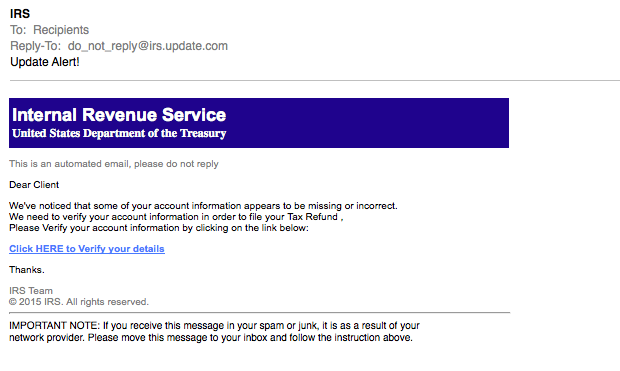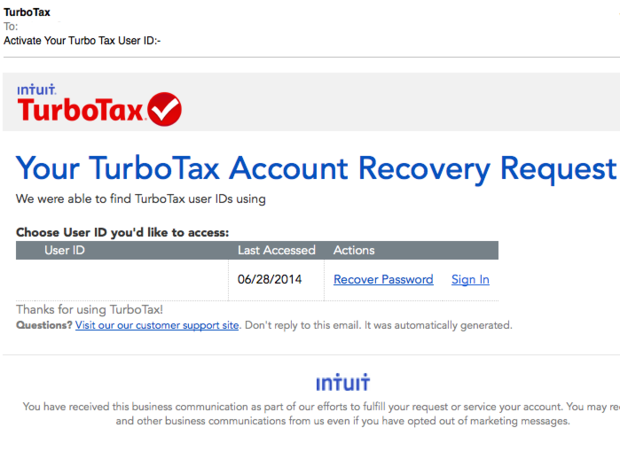Don't open these fake IRS emails
You may not have started your taxes yet, but scammers are already hard at work.
Andrew Conway, a research analyst at security firm Cloudmark, told CBS News he has already begun seeing a flurry of phishing emails disguised as requests from the IRS. Since we warned readers about them in December, the number phishing emails reported has jumped fivefold.
Scammers use these emails to gather enough information to file a false tax return on your behalf and reap a large refund. While all they really need is your name and your social security number, the more details they can get, the easier it is to pull off the scam.
These emails look as though the come from the IRS and claim that certain information is needed in order to e-file your taxes or receive a refund. The emails take many forms, some appearing to come from TurboTax -- Conway said he is seeing a wider variety than he saw last year -- but they all have one thing in common. They direct the recipient to click on a link, which brings them to a page where they are asked to fill in personal information. In some cases, a link will download malware onto a person's computer.
It's not high-tech stuff, but it's very effective. "The barriers to entry in this sort of scam are very low, so it's something that a lot of low level criminals can get into. You don't need any great technical or personal skills," said Conway. "One interesting thing we are seeing this year is that as the IRS is getting better at tax return fraud prevention, scammers are turning to state income tax departments instead, and filing fake state tax returns claiming a refund."
The IRS has 3,000 employees working on issues of identity theft. The IRS said it stopped 14.6 billion suspicious returns between 2011 and 2013, totaling more than $50 billion in fraudulent refunds. In 2013, they investigated 1,492 possible scams, a 66 percent increase over the year before. But nearly 3 million got through, with a price tag to taxpayers of $5.2 billion.
Below are some examples of the phishing emails currently circulating.
The best advice for avoiding a scam is: Just don't click. The IRS says it "does not initiate contact with taxpayers by email to request personal or financial information." If you get an email and are not sure about its validity, you can forward it to phishing@irs.gov.







